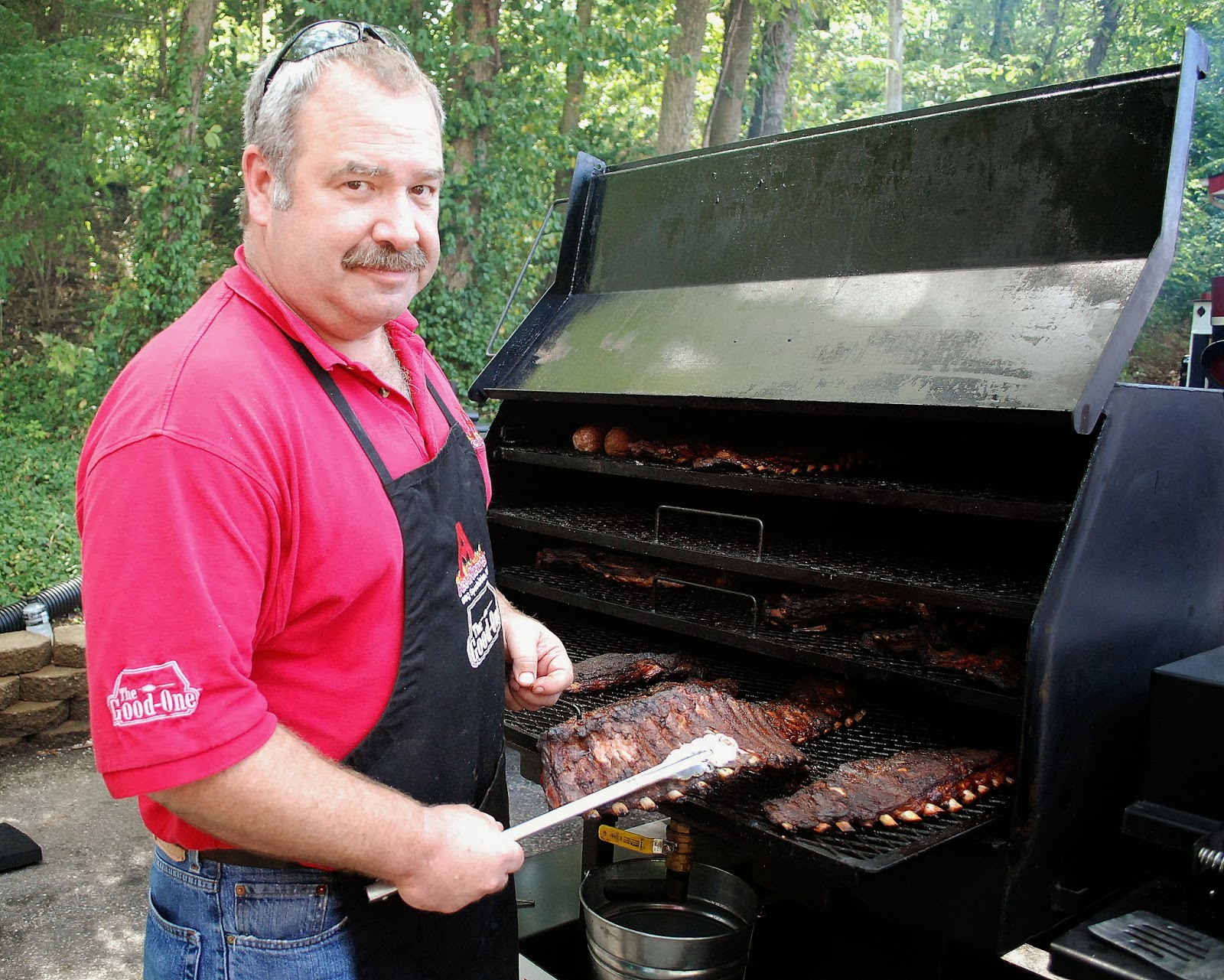 |
| Bill Pemberton and Greg Welch |
Bill Pemberton is from West Texas, where -- as he puts it -- “they eat barbecue more than they eat hamburgers.”
When he and his family moved to Central Indiana from Dallas about 15 years ago, they would put a lot of miles on their car in search of good barbecue.
“We basically spent two years driving all over the state trying to find barbecue and finally just quit. We’d ask, ‘Where’s your smoker?’ and they’d say, ‘Smoker? We don’t have a smoker,” said Pemberton, who today manages the City Barbeque location in Avon, Ind. We first met when at City's Greenwood location.
City Barbeque (Greg says this is the correct spelling – “Ours is with a ‘Q’”) first opened in 1999, when Rick Malir and other members of an award-winning barbeque competition team founded the first location in Columbus, Ohio. The team has been a winner at the Kansas City Royal Barbeque competition.
Today, the Dublin, Ohio-based company operates about 25 locations across the Buckeye State and in Indiana, Kentucky and North Carolina.
 |
| An Orange Nehi goes well with this. |


